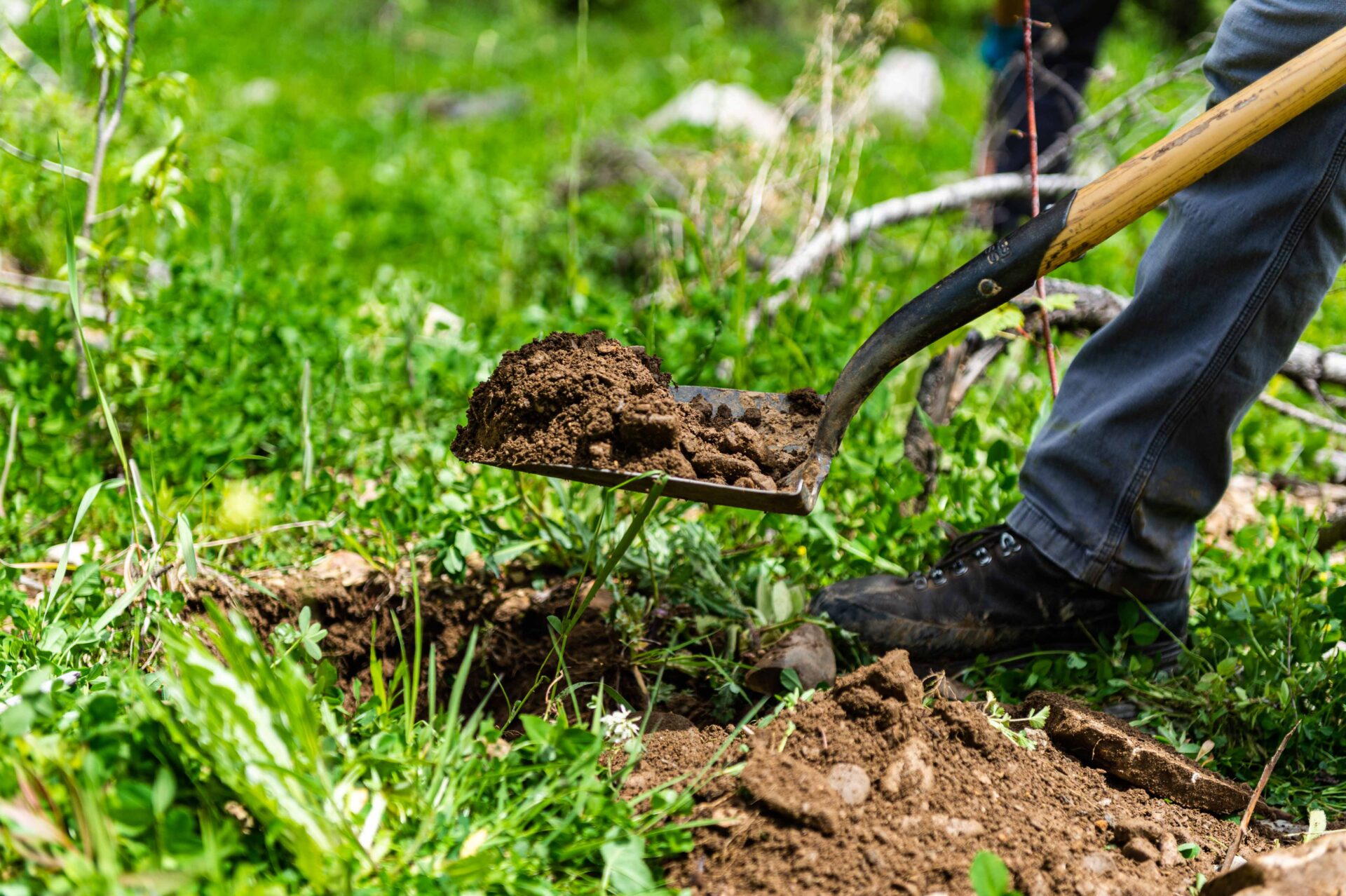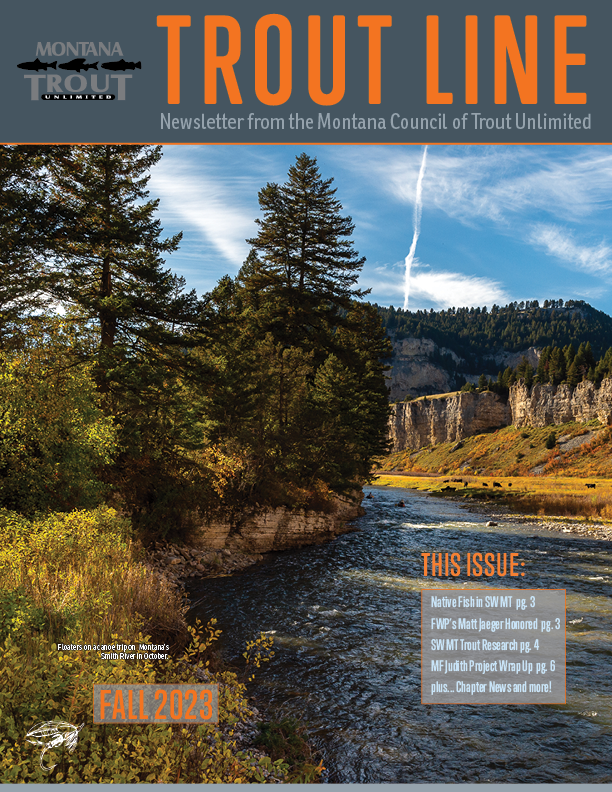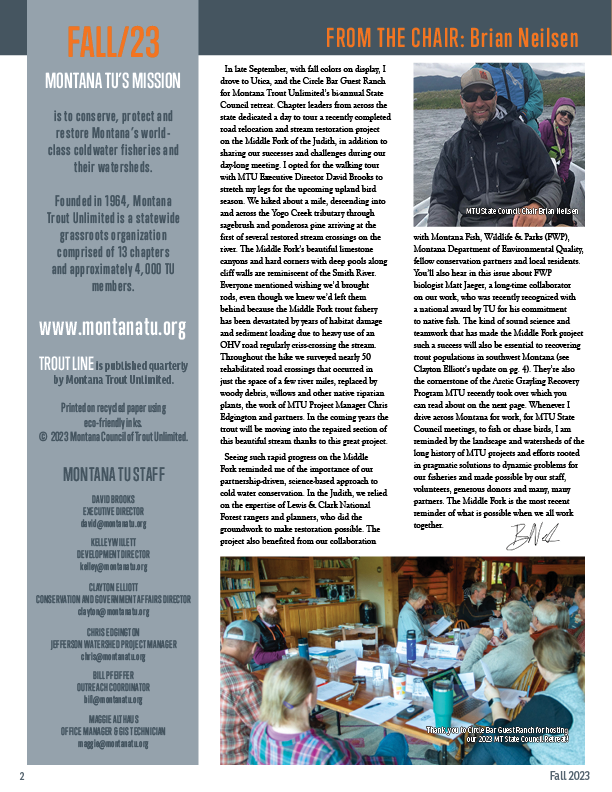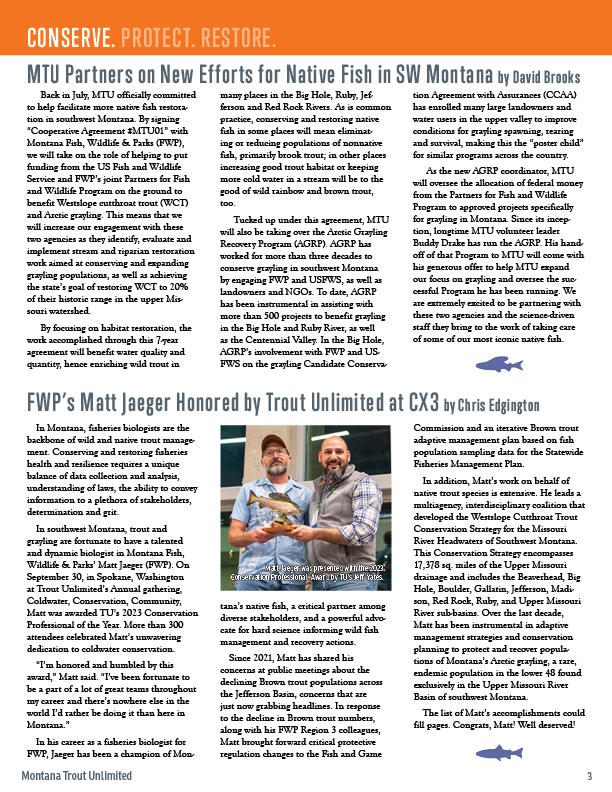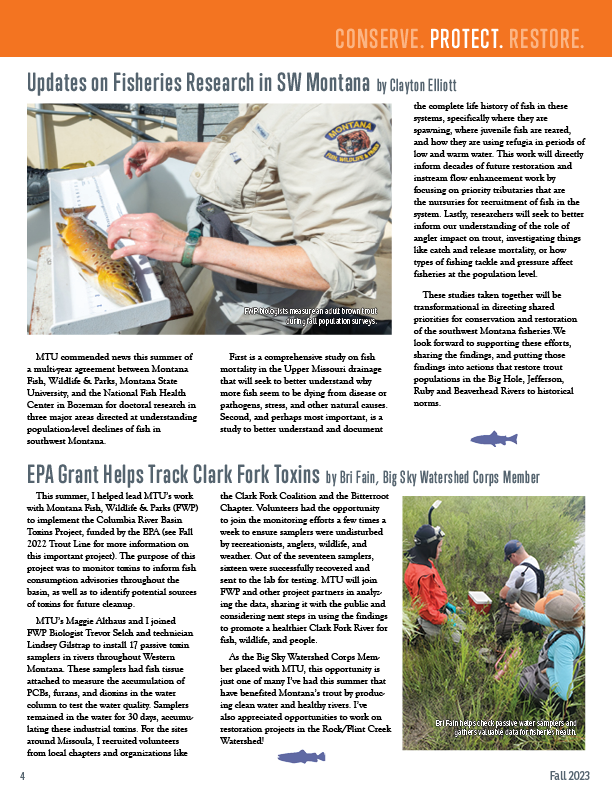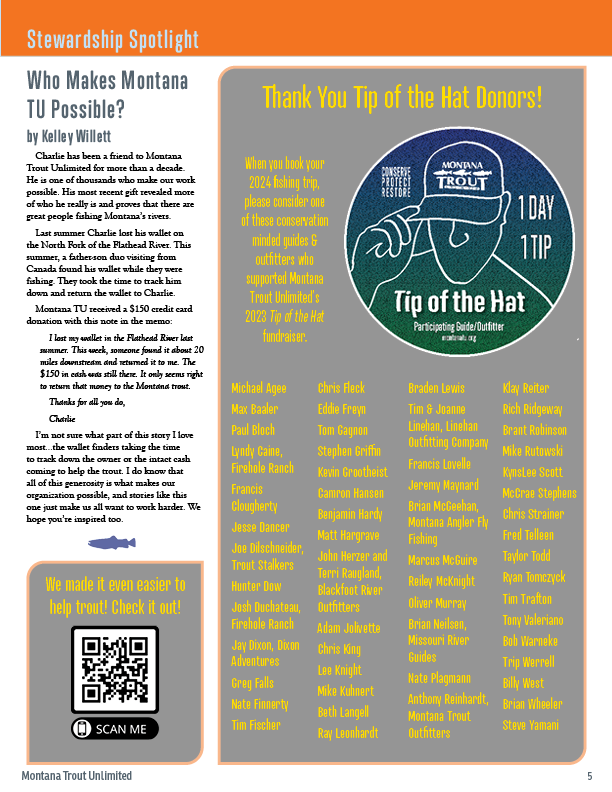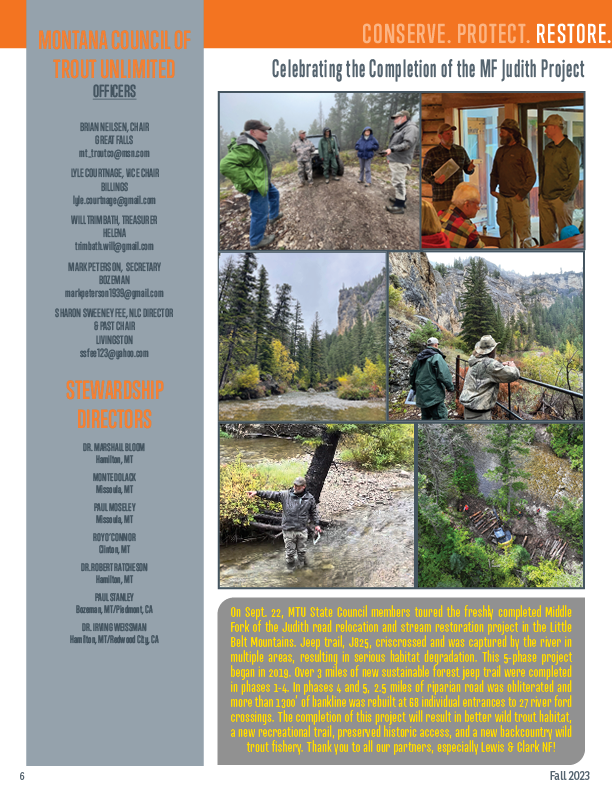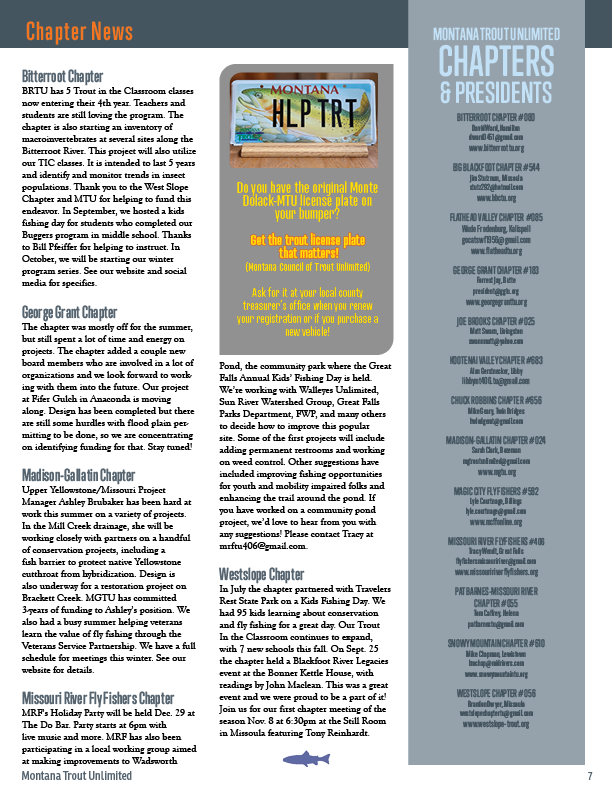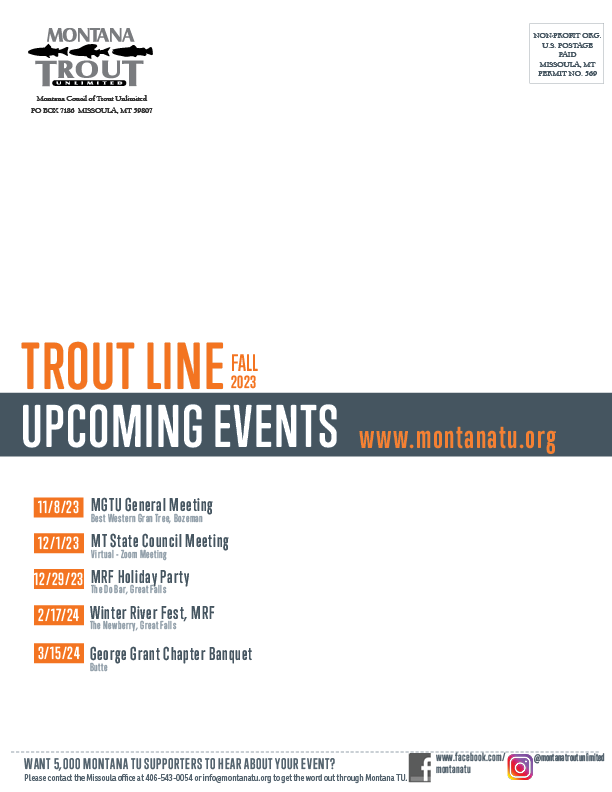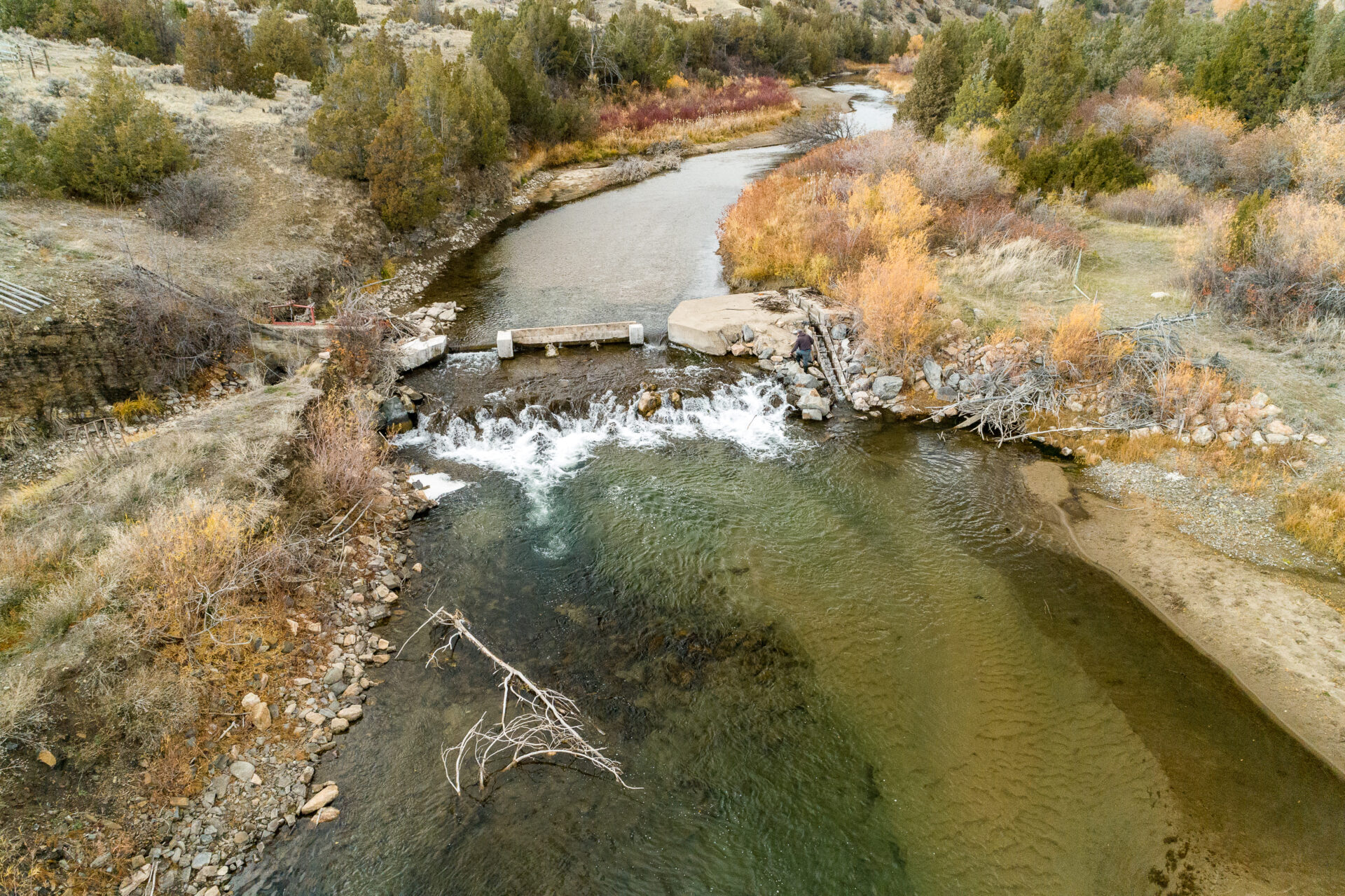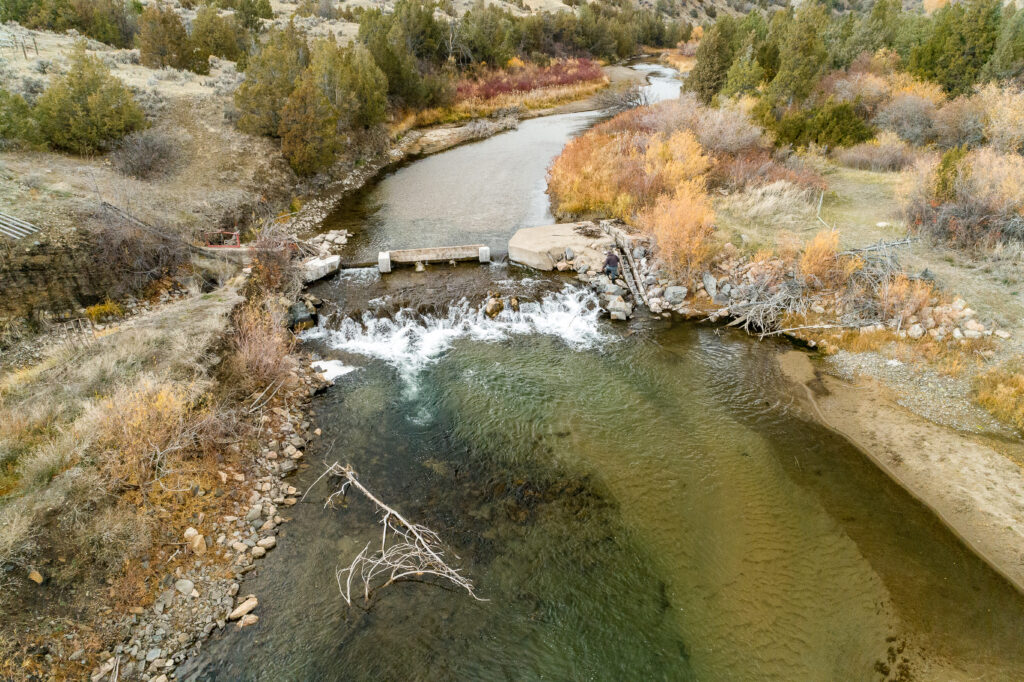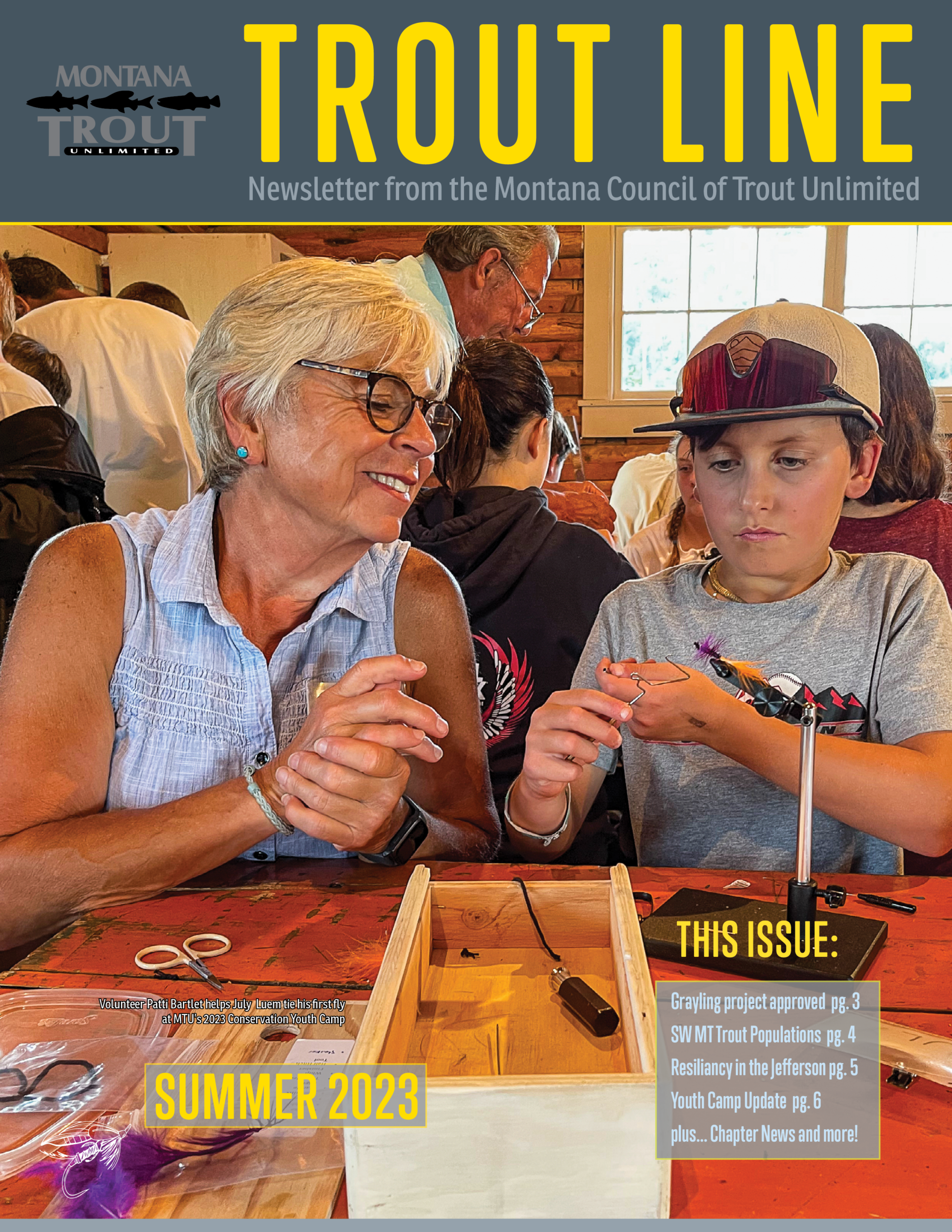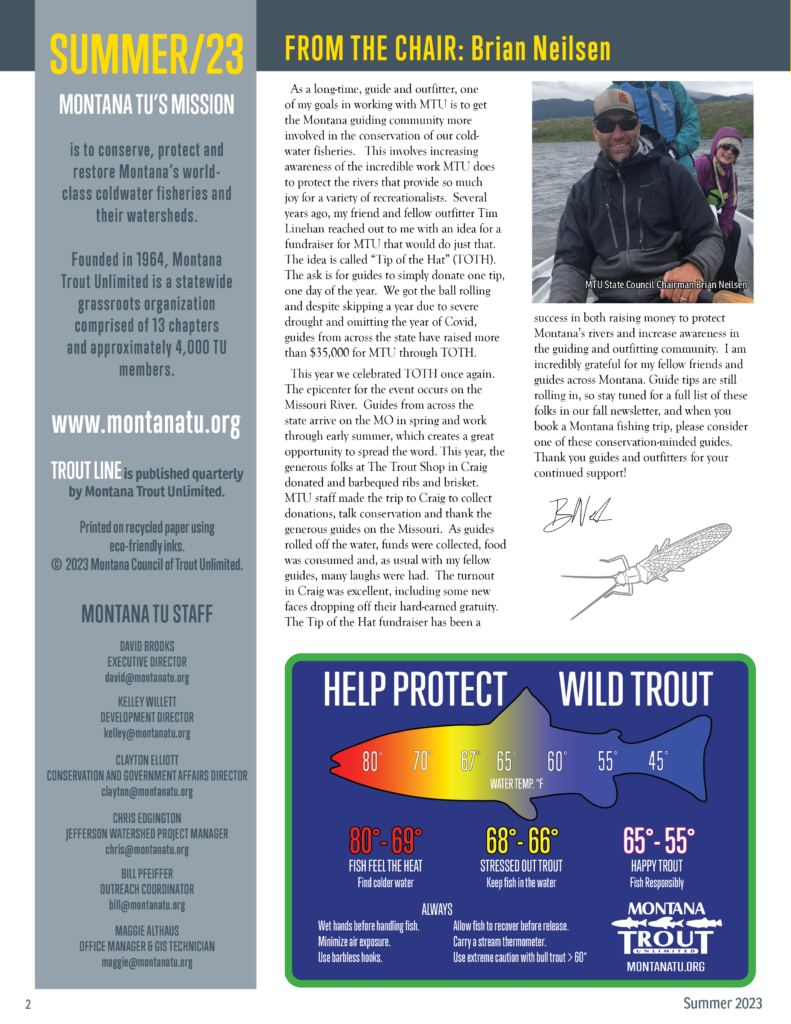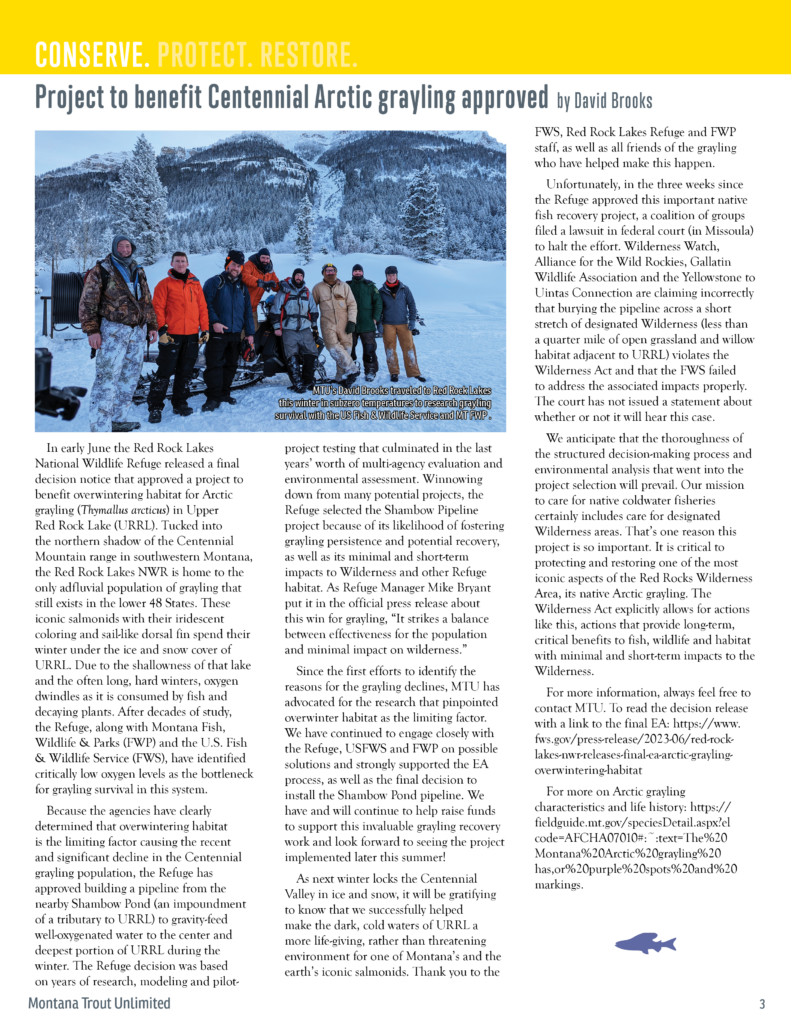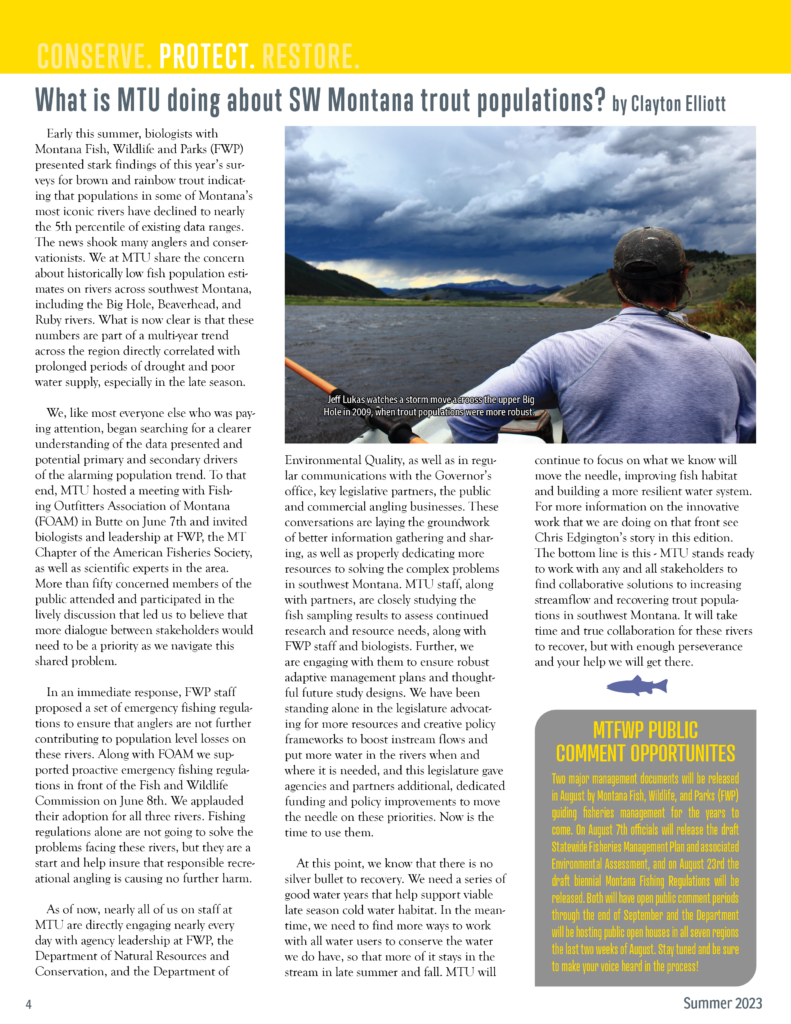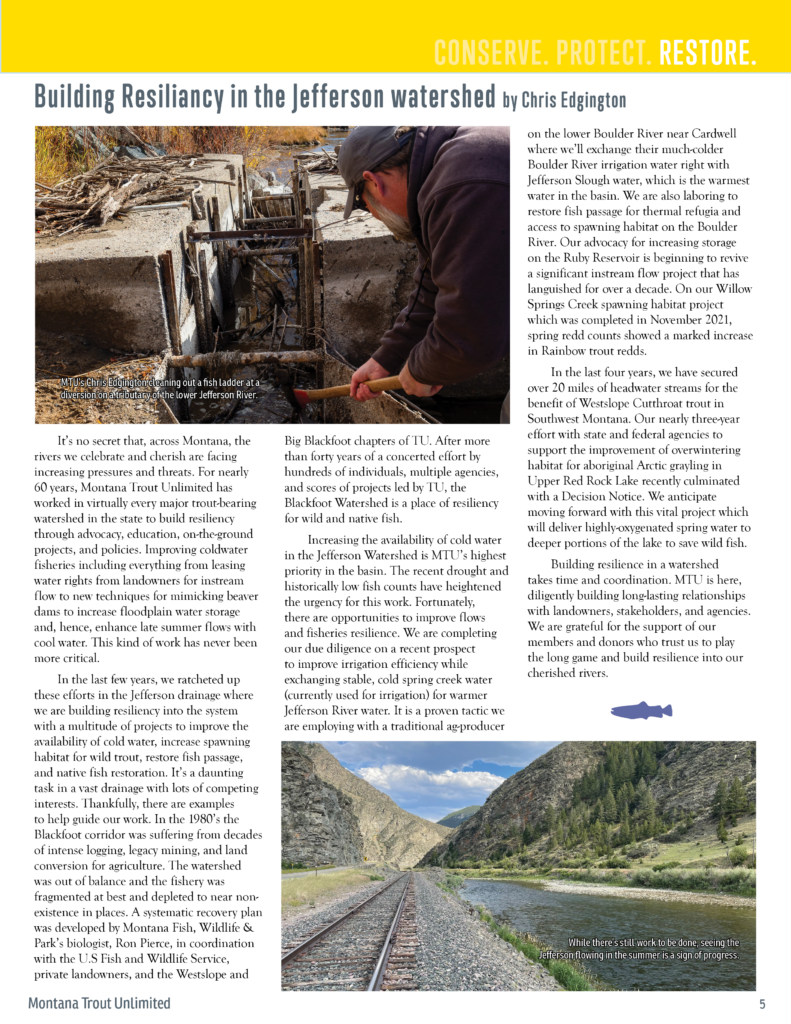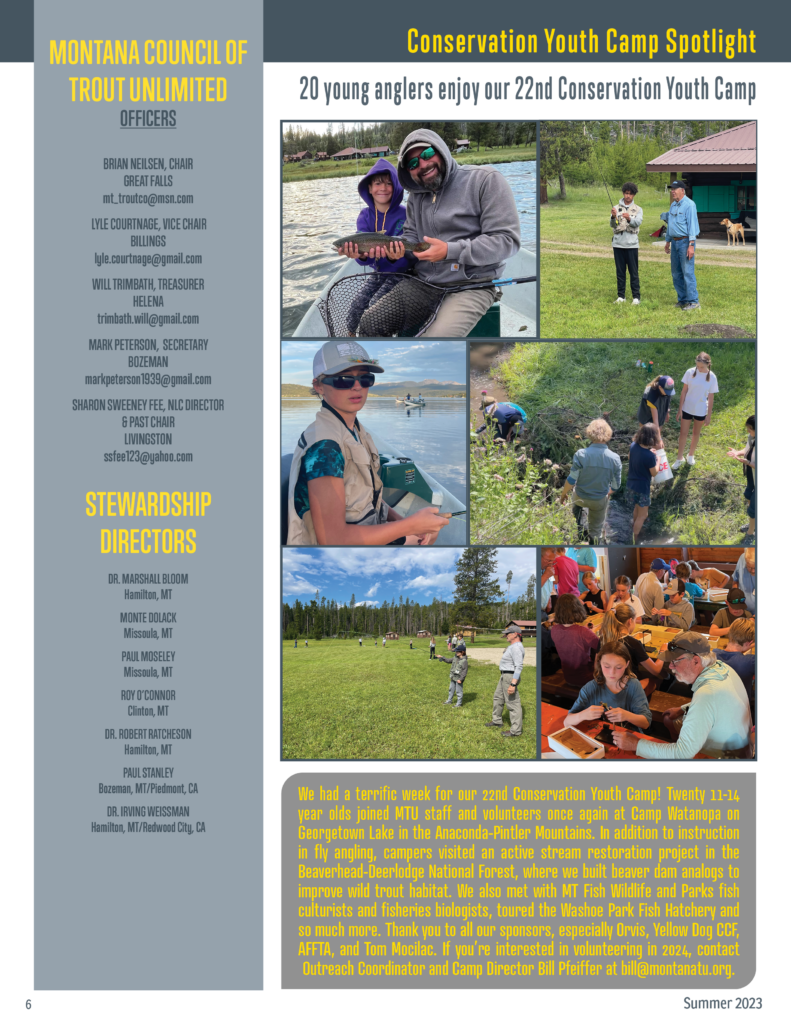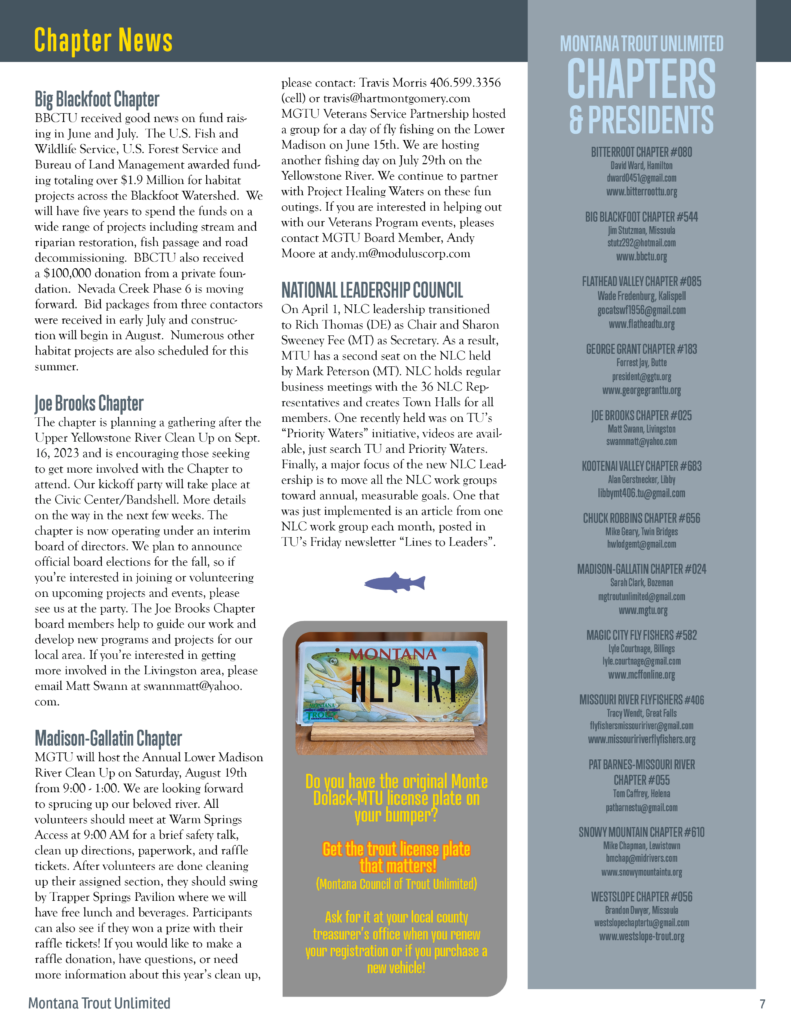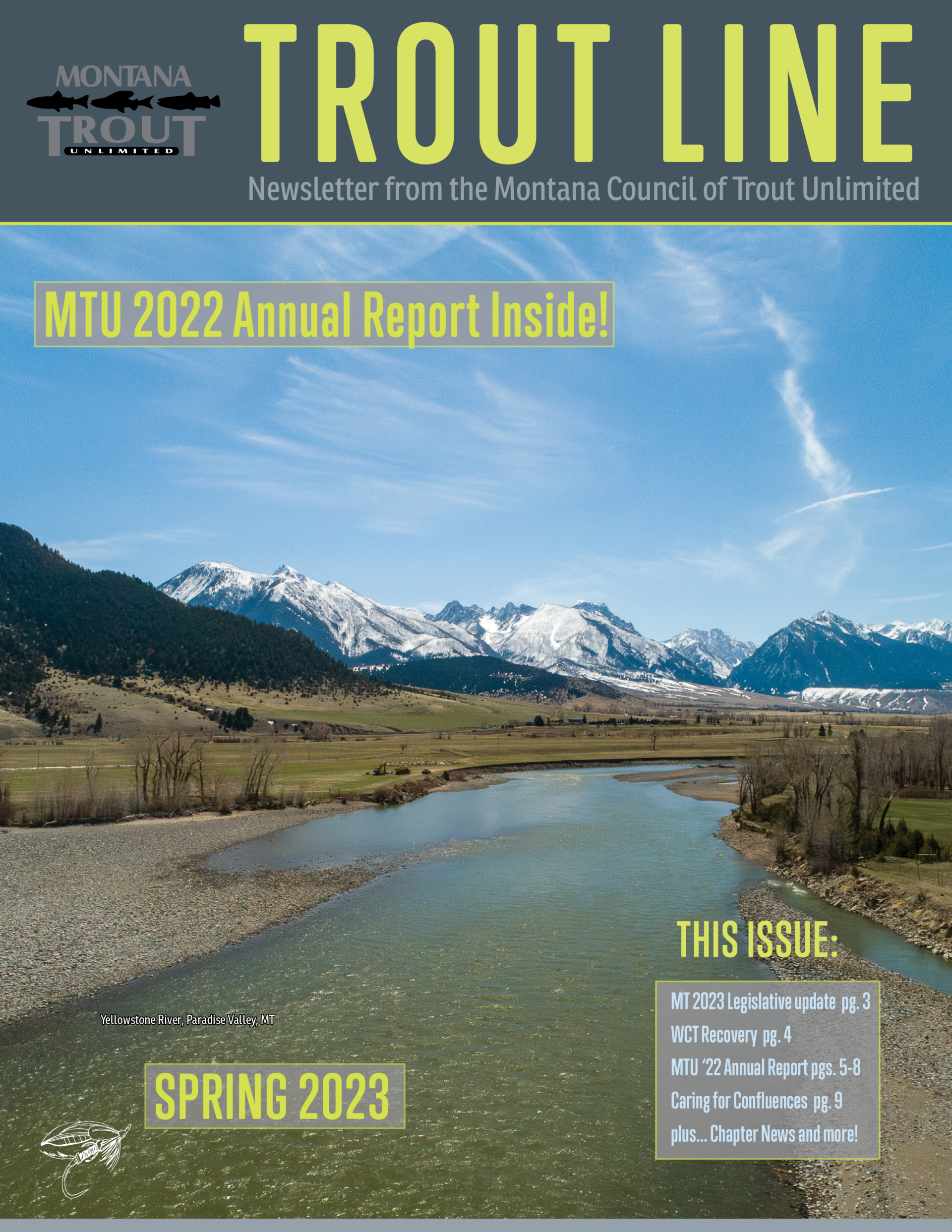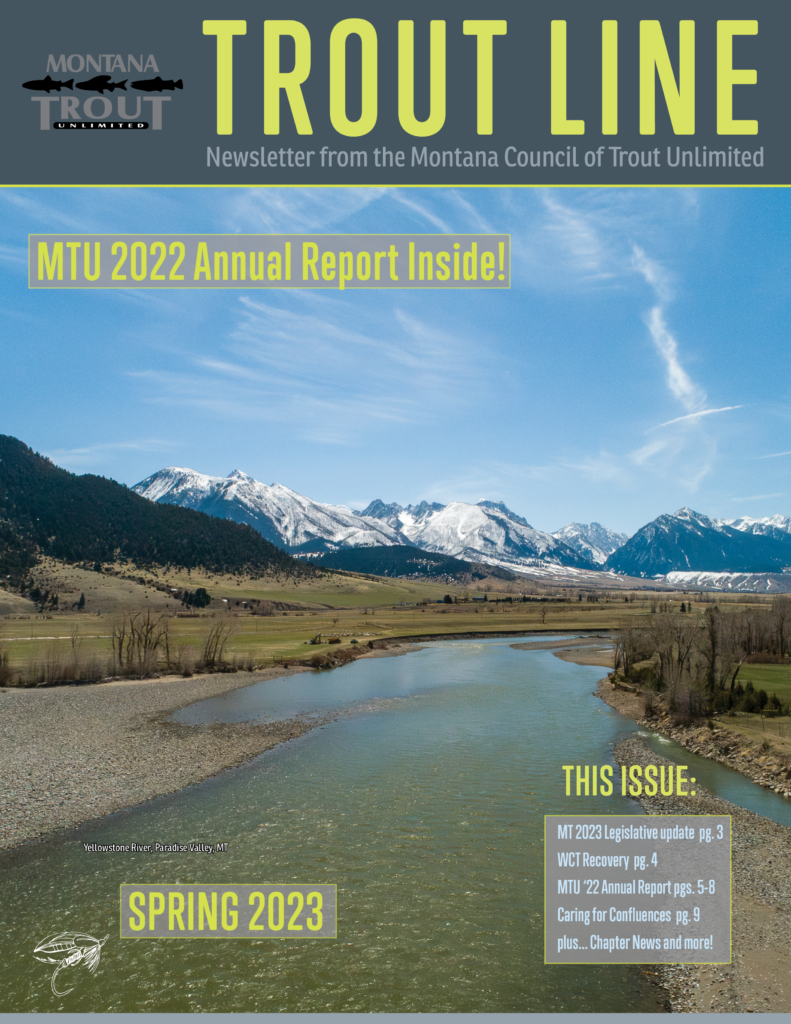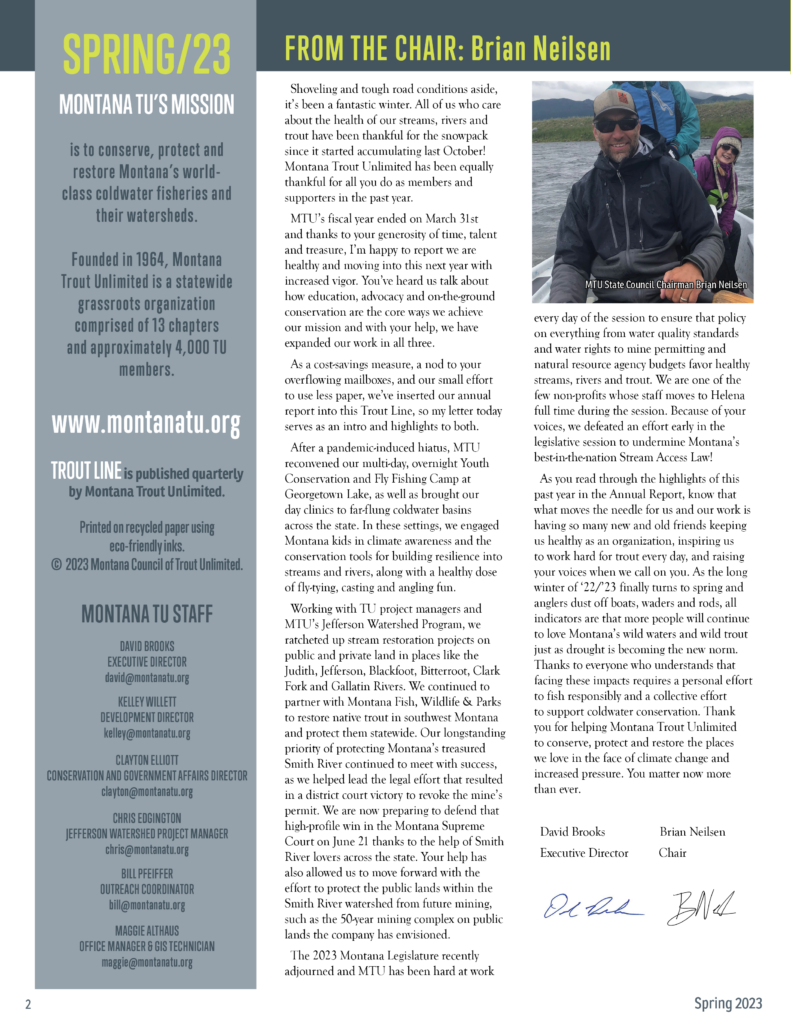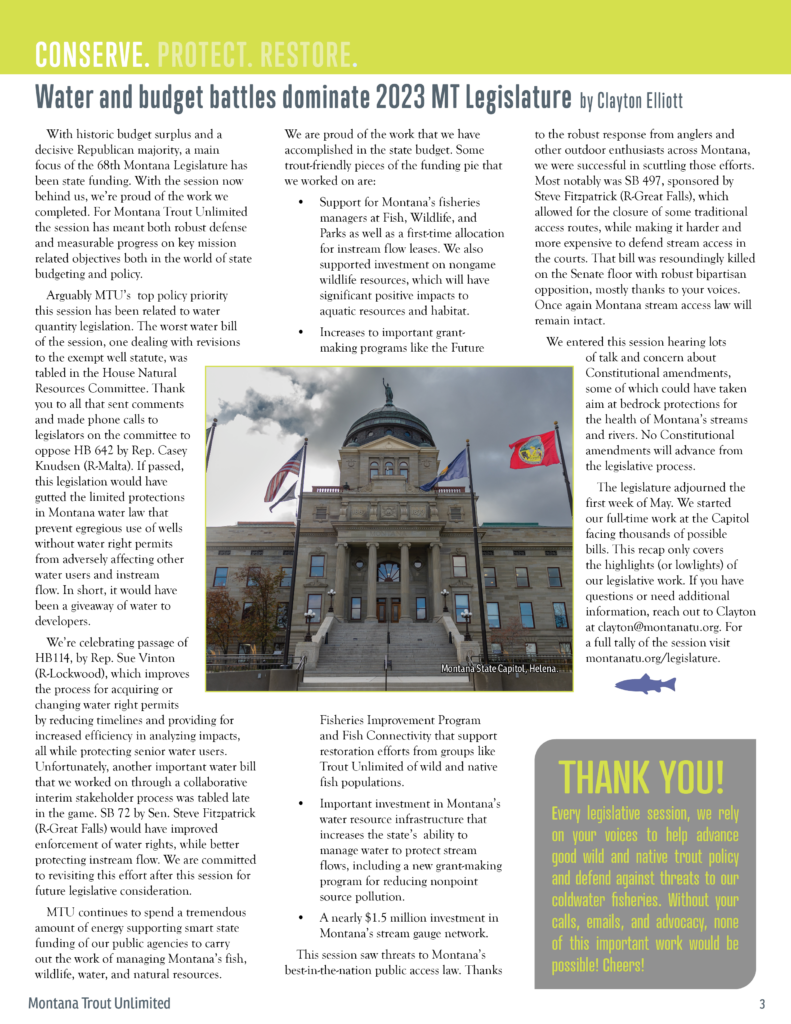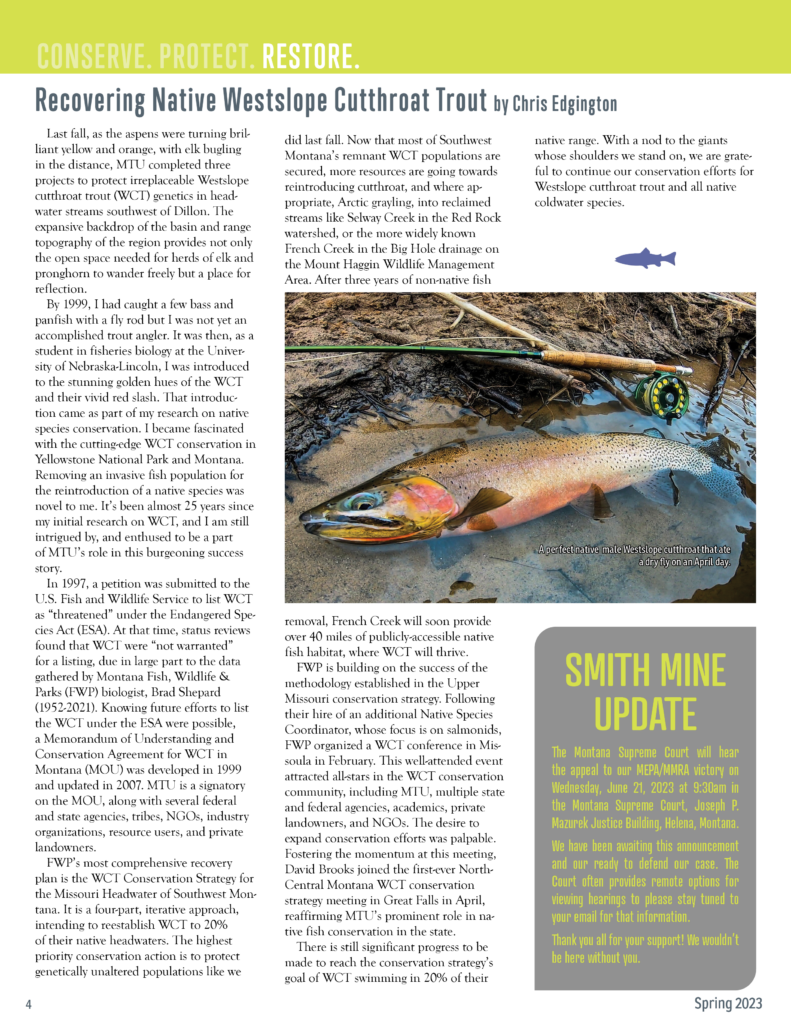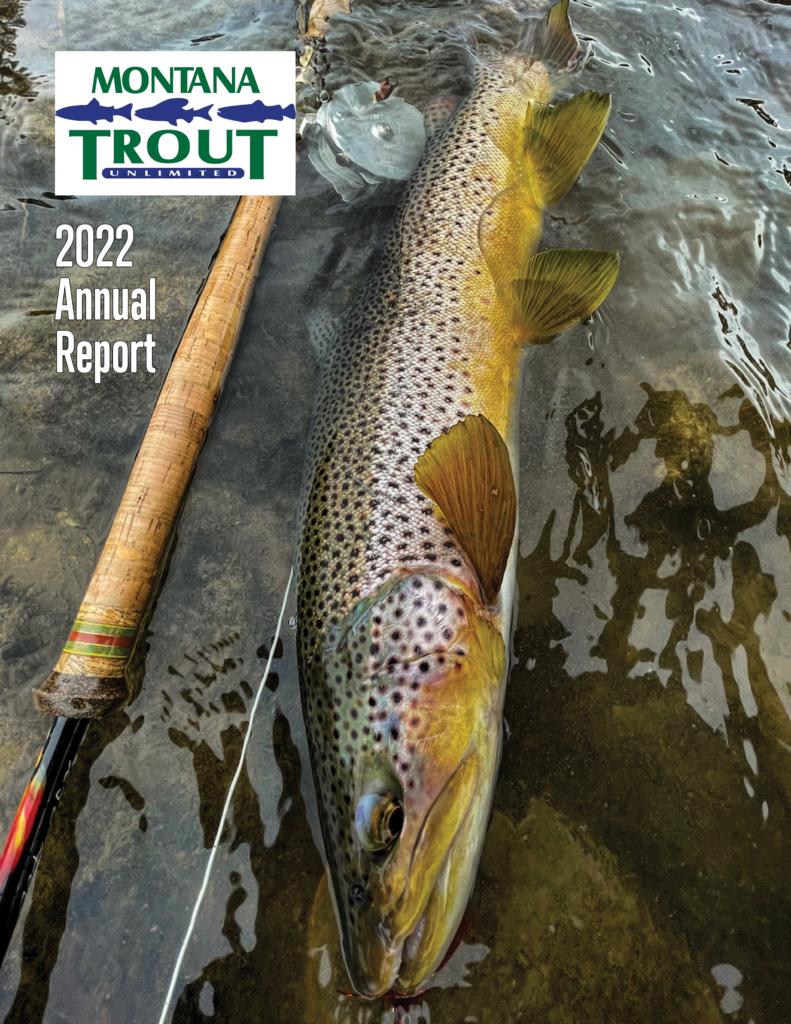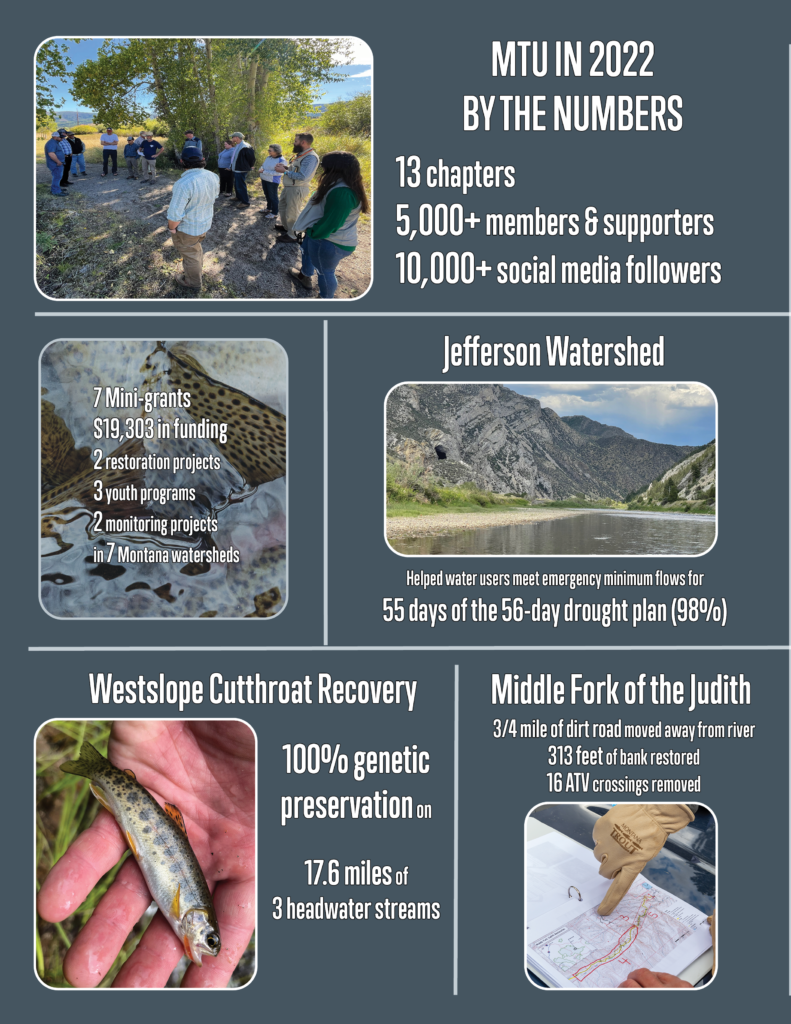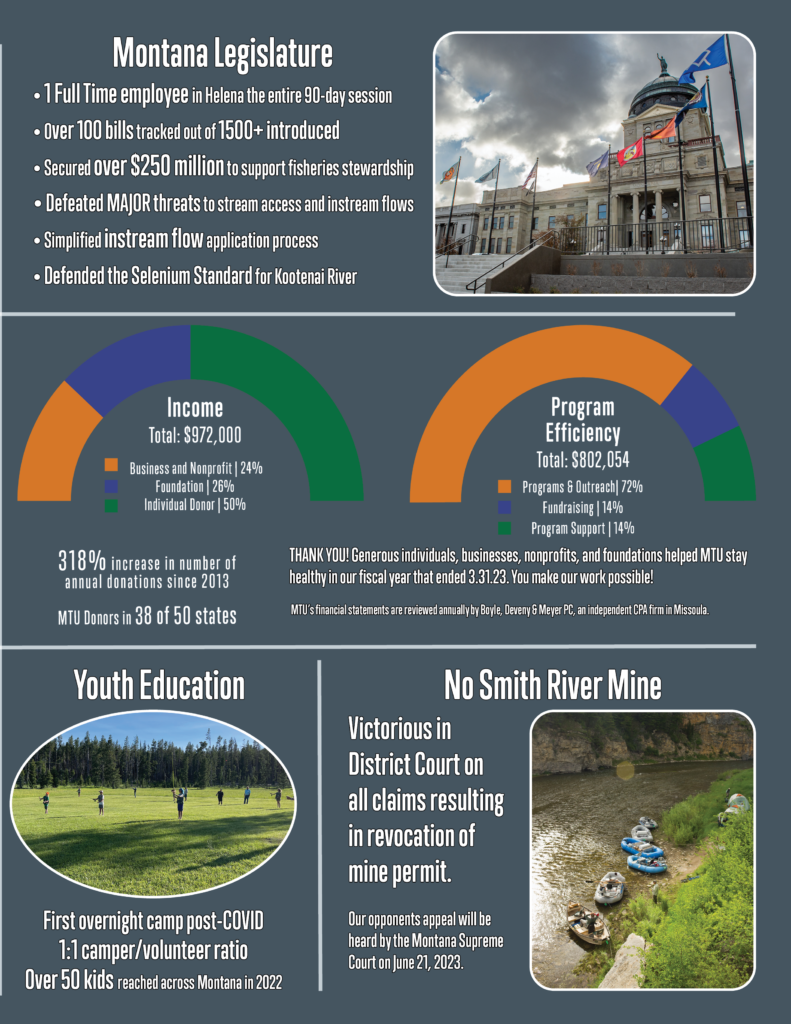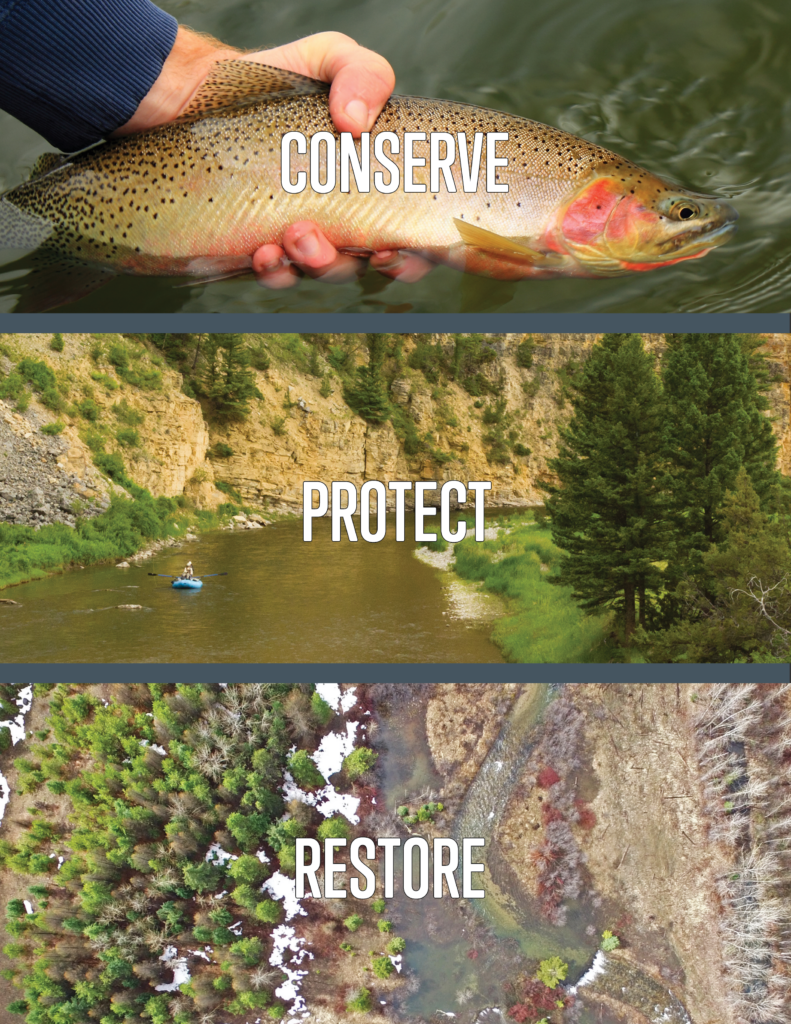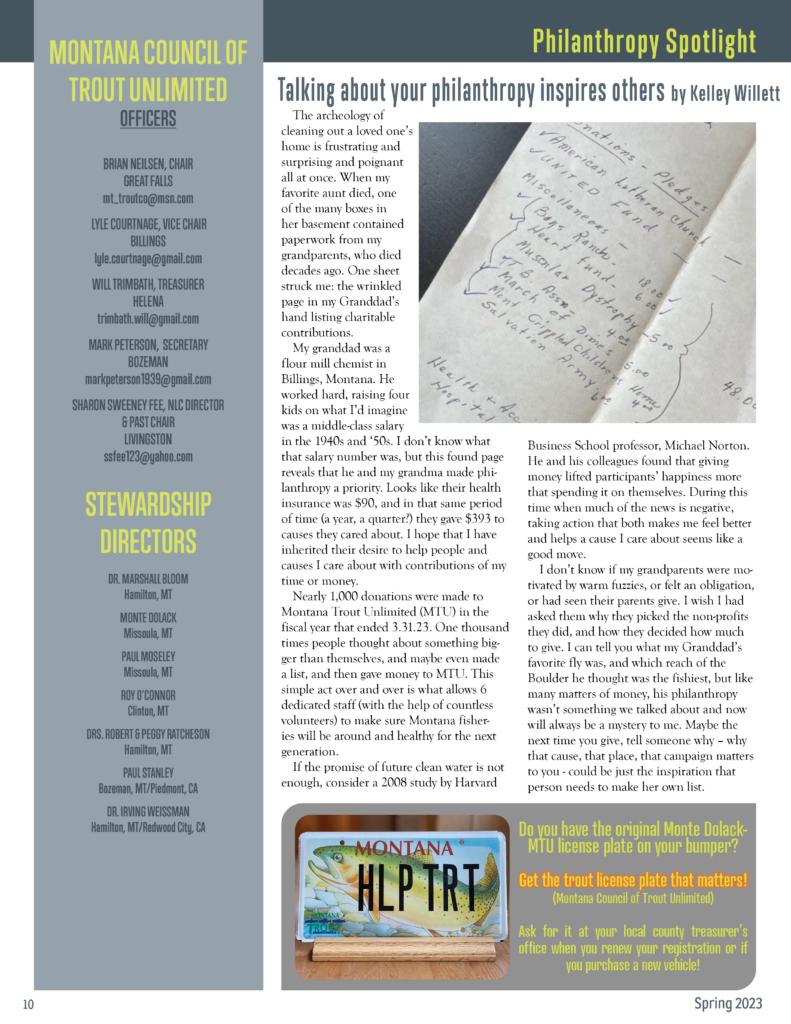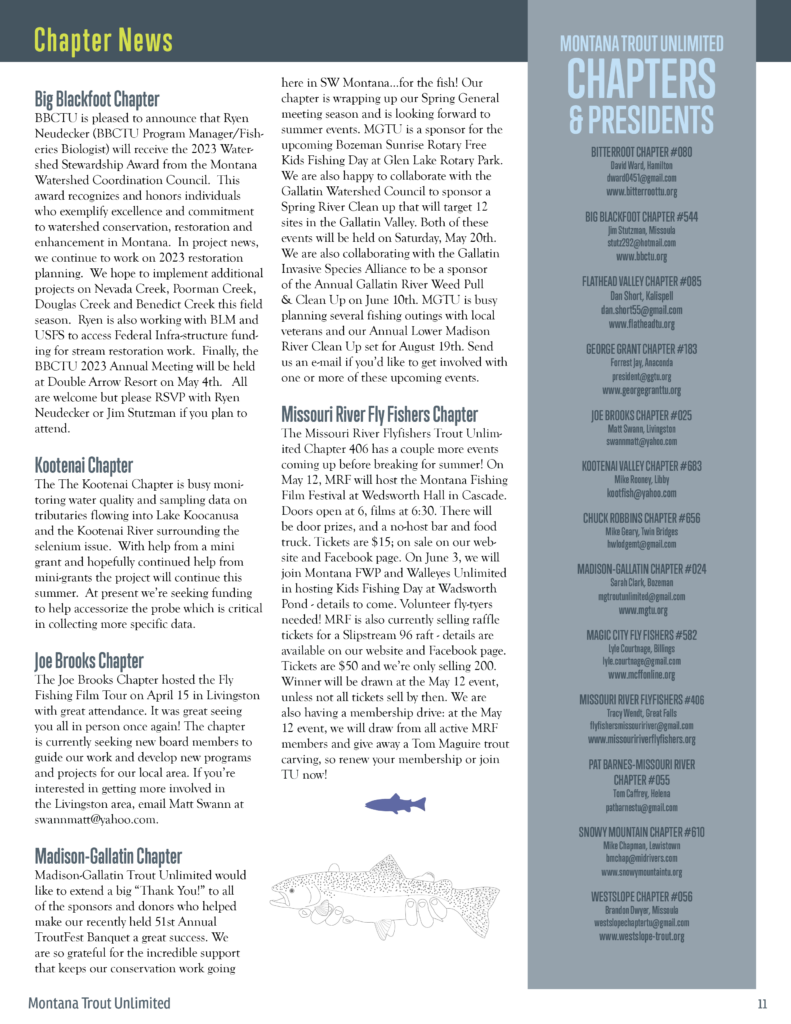ABOUT MONTANA TROUT UNLIMITED
Montana Trout Unlimited (MTU) represents more than 4,200 members and supporters organized into 13 chapters in Montana. We are a small, dedicated, creative staff tasked with overseeing our mission to conserve, protect, and restore Montana’s coldwater fisheries and their watersheds. MTU fulfills this mission through staff and volunteer-led outreach and education, fundraising, policy development, and science-driven stream restoration.
For more than two decades, MTU has regularly partnered with our national Trout Unlimited project managers and other stakeholders on streamflow and habitat restoration work across the state. Our work focuses on restoring instream flow, fish passage, and improving habitat for the benefit of native and wild trout populations in the Clark Fork, Missouri, Gallatin, Madison, Jefferson, Yellowstone, and many major tributary rivers and streams. In all of these geographies, we work collaboratively with federal and state agencies, as well as other nonprofit partners and businesses on federal, state, and private land-based projects. MTU is now interested in dedicating a project manager to evaluate and execute priority projects of this nature in the Yellowstone watershed, with a strong emphasis on Custer-Gallatin National Forest lands in the vicinity of Red Lodge, MT. This position will focus on inventorying, prioritizing, developing and implementing projects in the tributaries and mainstem of Rock Creek, East and West Rosebud, and the Stillwater River, as well as other prioritized streams. Thus, MTU is seeking qualified applicants to fill the newly created Custer-Gallatin Forest Project Manager position.
POSITION SUMMARY
TU Project Managers hold unique and diverse positions depending on the needs and opportunities in different watersheds. In short, people in these positions “make things happen on the ground.” In that spirit, we are hiring a self-motivated and highly capable person to identify, plan, and implement water conservation, fish passage, and stream and riparian restoration projects to benefit aquatic resources and fish populations primarily on streams in and adjacent to the Custer-Gallatin National Forest. The Project Manager will work closely with the USFS Custer-Gallatin staff to seek opportunities to reconnect coldwater sources to mainstem rivers and restore or create more resilient coldwater habitats on public lands. The Project Manager will be responsible for all aspects of this work from engaging relevant partners to inventory this geography for needed and potential projects, through project planning, permitting, contracting, implementation, monitoring and outreach. In addition to working with forest service staff, this position will also engage other TU staff, TU chapter volunteers and chapters, and partner organizations working in these watersheds. Experience with stream restoration, contractor oversight, and hydrology are key qualifications. Excellent interpersonal skills and communications –verbal and written – are a must, as is a high level of motivation to pursue the MTU mission.
A significant focus will be placed upon partnership-building with the Custer-Gallatin Forest and MT Fish, Wildlife and Parks, as well as the nearby Magic City Flyfishers chapter of TU (Billings) and the Joe Brooks chapter of TU (Livingston). Engaging local land trusts, conservation districts, state and federal agencies, landowners, watershed groups, and other non-profit organizations will also be key to success in this role. In addition, the successful applicant will be expected to seek out, apply for, and obtain funding to support project work and core operational costs. The Project Manager will work closely with other TU Project Managers in the state to obtain experience and coordinate efforts. Ideally the successful candidate will live and work from Red Lodge, MT, or the surrounding area. This position will require frequent local travel for field work.
When you join MTU, you will become part of a highly supportive community of coworkers who believe in collaboration, respect and sharing inspiration, as well as being committed to our core values: Science, Native and wild trout, Connectivity and Diversity. MTU is committed to working toward justice, equity, diversity, and inclusion both within our organization and in our work with people outside the organization.
DUTIES AND RESPONSIBILITIES
- Engage USFS, other state and federal agencies, TU chapters and other stakeholders to prioritize projects, develop partnerships, and initiate restoration or instream flow planning activities, primarily on CGNF.
- Create a bibliography of past data collection, assessments and restoration work in the watershed to help inform and prioritize future restoration.
- Develop and implement streamflow, habitat, and fish passage restoration projects and monitoring plans.
- Coordinate with state and federal agencies and other TU staff to collect field data for project development and post-project monitoring
- Work both independently and in partnership with other TU staff on fundraising, including identifying potential funding sources, drafting grant proposals, and developing relationships with funders to sustain the program budget.
- Supervise interns and/or seasonal field technicians.
- Perform basic administration duties including project reporting, invoicing, and tracking project budgets.
- Present project work and progress to chapter membership/meetings and/or at statewide TU meetings.
- Attend and report work at quarterly MTU meetings, as well as attend numerous annual chapter functions/gatherings.
This is not an all-inclusive list of duties and responsibilities.
QUALIFICATIONS
- Bachelor’s degree in a water resource related field (e.g. hydrology, fisheries, engineering, etc.) required; graduate degree preferred.
- Prefer two years of professional experience in natural resource project management, emphasis on stream restoration.
- Experience with water conservation, fish passage improvements, and stream restoration preferred.
- Construction experience, including working with and supervising contractors preferred
- Demonstrated performance in grant writing and other fundraising activities.
- Superior interpersonal skills and ability to work constructively with diverse partners, community stakeholders and private landowners.
- Excellent written and oral communication skills required.
- Experience with media relations and public outreach is helpful.
- Good organizational and problem-solving abilities.
- Ability to work independently while managing complex projects.
- Willingness to travel within the region as necessary.
- Ability to provide own transportation required, mileage reimbursed.
- Passion for protecting and restoring trout streams and their watersheds!
- Knowledge of the Yellowstone watershed and/or Custer-Gallatin National Forest is a big plus!
- Ability to lift 40lbs., work in inclement weather conditions, hike long distances over difficult terrain and work in/around moving water are necessary.
COMPENSATION
Estimated salary for this position is $60-65,000 annually, depending on experience. MTU also provides an exceptional comprehensive benefits package including: health care, flexible spending account, employer match retirement 401(b), holidays and accrued paid time off, sick time, sabbatical, and other life/work balance benefits.
HOW TO APPLY
Please upload a one- to two-page letter of interest, resume, three professional references, and less-than-one-page answers to the supplemental questions (below) to TU’s Paylocity Site by Dec. 15, 2024. Interviews will be in early 2024. Winter, 2024, start date is flexible.
SUPPLEMENTAL QUESTIONS:
To assist MTU in evaluating your application, please answer the following questions. Please make your answers concise yet specific and keep them to under one page, single-spaced.
- Please summarize your experience working with federal or state agency staff, especially on watershed-scale project planning.
- Describe any special training you have received or work experiences that you have had related to hydrology, fish passage, stream restoration and construction, stream-flow measurements, instream flow improvements, or investigating water rights. Describe any training, experience, or special qualities you have that are important for us to consider when evaluating you as a candidate for this position.
MTU is an Equal Employment Opportunity & Affirmative Action Employer pursuant to Section 503 of the Rehabilitation Act & Vietnam Era Veterans Readjustment Assistant Act.
MTU hires staff without regard to race, color, religion, national origin, age, gender, sexual orientation, marital status or disability.

